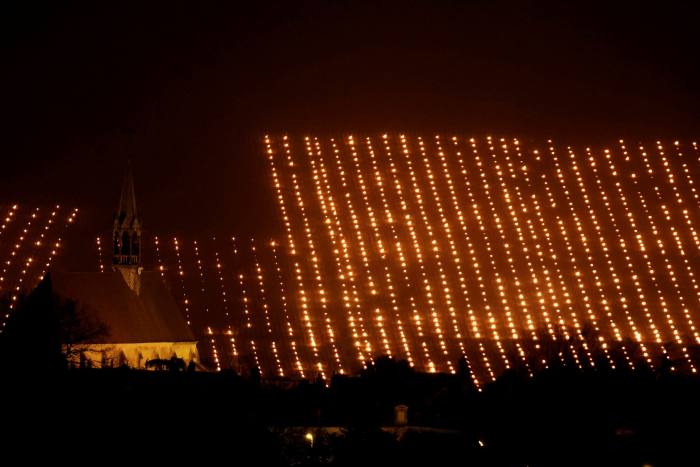[ad_1]
Severe frosts across France this week have badly damaged buds and flowers in vineyards and fruit orchards and will cut grape harvests in some areas by as much as 90 per cent, according to growers and farmers’ organisations.Â
“It was like winter coming in spring,†said Didier Delagrange, whose family has made wine from grapes grown on the slopes of Volnay in Burgundy for seven generations.Â
“There was considerable damage, but we haven’t fully evaluated it yet,†he said. “The Chardonnay was more affected because the [shoots] were more advanced.†Around half of the vines in Burgundy have been damaged, according to local producers.Â
In Chablis to the north, winegrower Thierry Mothe said the temperature had fallen as low as -7C, and 90-95 per cent of the potential crop would be lost. “There will be very little harvest in 2021,†he said. “It was like a winter frost, not a spring frost.â€Â
After a series of other problems, including US wine import tariffs linked to a trade war with the EU and the closure of many restaurants and bars around the world as a result of the Covid-19 pandemic — “there are some domains today that will be in very severe difficulties,†Mothe said.

Even Bordeaux in south-western France was hit by the frosts, which also damaged the growth on fruit trees such as apricots, peaches and nectarines, and field-crops such as rapeseed and sugar beet. The impact was particularly severe because the freeze followed several days of warm weather that accelerated plant growth.Â
Julien Denormandie, agriculture minister, said a state of agricultural calamity would be declared to mobilise financial support for farmers. “This is a completely exceptional situation,†he said on Franceinfo radio. “The losses are substantial.†The CNIV, which represents wine producers, called the disaster “one of the worst of recent decadesâ€.Â
Social media in France have been marked this week by eerie night-time pictures of smoky braziers illuminating vineyards across the country as growers sought to heat the air and limit the damage to their crops, but the method is expensive as well as being inadequate to counter a very severe frost.Â
Delagrange said he would have needed 4,500 paraffin-fuelled heaters to cover all his 15 hectares at a cost of nearly €50,000 for the two worst nights, and growers could afford to protect only the vines for their finest wines.Â
“In numerous regions, from north to south and east to west, the damage is severe for winegrowers and fruit farmers,†the National Federation of Farmers’ Unions said in a statement. “There is also great distress for arable farms. The impact on rape, just as it is flowering, is dramatic, as it is for sugar beet seedlings: many growers will have to replant more than half their crops.â€Â
Late frosts are not unprecedented, but many French farmers blame global warming for some of the erratic weather they have endured in recent years, including droughts and floods.Â
Shorter winters, higher summer temperatures and faster ripening is changing the character of French wine vintages, and grapes are now harvested up to three weeks earlier than they were only a few decades ago.Â
Temperatures also dropped to below zero across the north of Italy, after weeks of sunshine and warm weather. Nebbiolo, Moscato and Barbera winemakers in Piedmont said that between 50-80 per cent of their annual production had been destroyed by the frost.Â
In Piedmont and farther south, in Tuscany and Lazio (the region that contains Rome), apricot, peach and kiwi harvests have also been lost, according to local media reports.
Additional reporting from Silvia Sciorilli Borrelli in Milan
This article was amended after publication to include Barbera winemakers in Piedmont
Follow @ftclimate on Instagram
Climate Capital

Where climate change meets business, markets and politics. Explore the FT’s coverage hereÂ
[ad_2]
Source link





